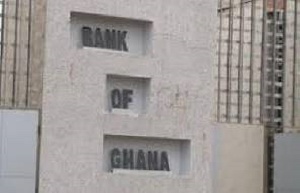Revoking the licences of the insolvent banks was a necessary evil, since they had become a “silent canker” which could have brought down the whole sector, Second Deputy Governor of the Bank of Ghana, Mrs. Elsie Addo Awadzi, has said.
Addressing the annual general conference of the Ghana Bar Association themed “Banking Crisis—the role of the regulator,” held in Koforidua, she said: “To be clear, failed banks should not be allowed to remain in the financial system as they become serious sources of risk to the sector and the economy as a whole.”
The central bank, she said, remains committed to restoring trust and confidence in the banking system, and to promoting the stability and integrity of the sector.
Banks, she noted, currently hold over 80% of the total assets of Ghana’s financial system and it was incumbent on them to understand their critical role and the risks they introduce into the financial system and the economy, to manage their risks prudently.
Of the collapsed banks, she said: “This was the silent canker that could soon bring the entire financial system and the economy to its knees. We have learned that zombie banks are no good to anyone and that, in time, they cost the taxpayer dearly.”
She added: “No one wins when a bank fails, and there are usually no pretty outcomes. Depositors could lose their savings — including pensions and investment funds held by these banks — while creditors of the bank could lose the funds they have lent to the bank.
Jobs are lost and the economic future of employees, and their dependents, suddenly becomes uncertain. The potential effects do not stop there. Other banks could suffer runs by their depositors, as a general sense of mistrust in the banking sector builds up.”
Contrary to suggestions that collapsing the banks could affect jobs and access to funds by small and medium-sized enterprises in the country, she opined that allowing non-performing banks to operate could be more disastrous.
While some have called it a banking crisis, she described the situation to be “a moral crisis that was characterised by a breakdown in values, unethical behaviour, disrespect for the sweat and hard work of others who toiled to put their savings in banks, [and] disrespect for employees who toiled day and night to meet targets set for them”.
She said: “The resulting costs to the nation are staggering and we must, as a nation, resolve that never again will we allow this to happen…we must resolve that we will put our tax cedis to better uses than to mop up the mess that others leave behind.
In taking these actions, we must balance the interests and rights of individual shareholders, creditors, and employees, with the public interest objective of promoting and maintaining financial stability.”
After handing over the UT and Capital banks to GCB bank, the central bank revoked the licenses of Unibank Ghana Ltd., Royal Bank Ltd., Beige Bank Ltd., Sovereign Bank Ltd. and Construction Bank Ltd, and merged them into the Consolidated Bank, with a US$1.2 billion rescue plan.
Business News of Monday, 17 September 2018
Source: thebftonline.com













